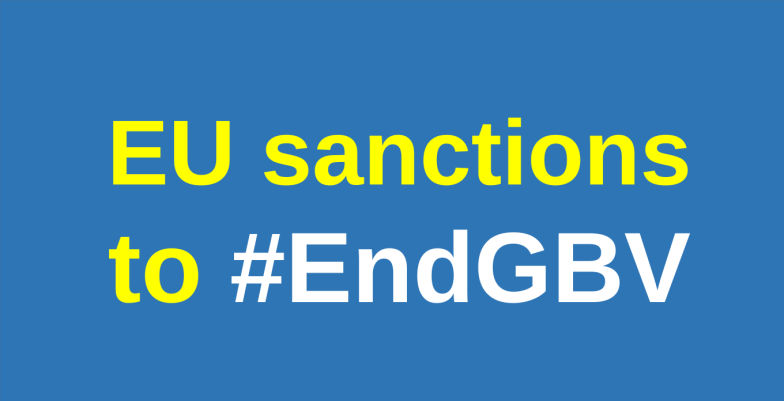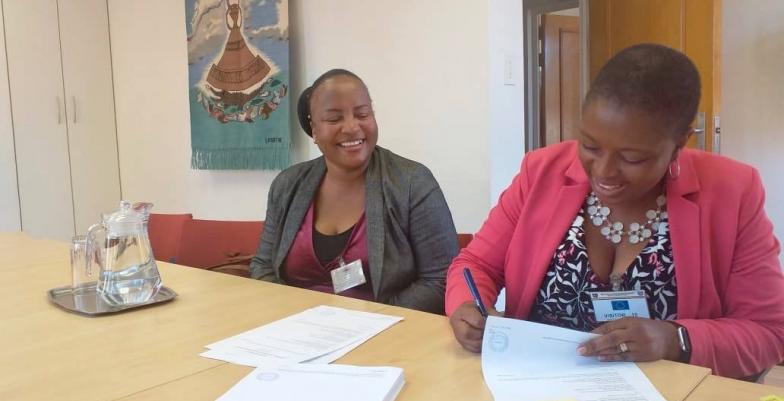Combatting Gender-based Violence
The EU is a global leader in the fight against gender-based violence. Violence against women and girls is a crime and it is also one of the most devastating human rights violations in the world. It is many times a life-threatening health issue, which is rooted in gender inequality, the abuse of power and harmful norms. Gender-based violence prevents women and girls from fully participating in society. It weakens the social fabric that binds families and communities together, preventing countries from achieving social stability and economic development.
EU action to combat violence against women
The scale of the problem remains alarming: one in three women worldwide have experienced physical and/or sexual intimate partner violence or non-partner sexual violence in their lifetime. Furthermore, one in three women in the EU aged 15 or over have experienced physical and/or sexual violence. Violence against women exists in every country, culture and community.
Change is possible, but it requires action, commitment and determination. The EU is committed to continue to work tirelessly with its partners to investigate and punish acts of violence, ensure support for victims, and at the same time to address the root causes and reinforce the legal framework. Our goal is very clear: to end all forms of violence against women and girls. We owe it to all the victims. The EU has a comprehensive set of rules to protect Victims' Rights
The Istanbul Convention
The EU and its Member States work together to prevent and combat violence against women and girls, protect victims and prosecute perpetrators. The EU protects women and children from gender-based and domestic violence through legislation and practical measures. 1 October 2023 marked the entry into force of the Council of Europe Convention on Preventing and Combating Violence against Women and Domestic Violence (Istanbul Convention), making the European Union the 38th Party to the Convention.
New EU law to combat violence
With the Directive (EU) 2024/1385 of the European Parliament and of the Council of 14 May 2024 on combating violence against women and domestic violence, the European Union now has the first ever law to effectively fight violence against women and domestic violence.
The EU-UN Spotlight Initiative
The EU-UN Spotlight Initiative aims at eliminating all forms of violence against women and girls in partner countries in the broadest sense possible, covering physical, psychological, sexual, economic and other types of violence and discrimination, harmful practices and the exclusion that women suffer in the different areas of their private and public lives.
Six years since its launch in December 2017, the Spotlight Initiative's initial phase has been fully implemented in 5 regions through 26 country programmes, 5 regional programmes and 2 programmes with UN Trust Funds, which specifically works with grassroots’ organizations and women’s organisations. Civil society plays an essential role in Spotlight Initiative, not only as an implementing partner at country level but also at the different governance levels at country, regional and global levels in its advisor capacity.
Spotlight Initiative’s success has led to it being selected as one of the 12 High Impact Initiatives for its impact across all of the Sustainable Development Goals.
As Spotlight Initiative enters its next phase, the EU continues to invest in the prevention of gender-based violence (GBV) globally. Addressing GBV is a significant, long-term development challenge. Recognizing its scale, the EU launched two new initiatives:
- Spotlight Initiative's High-Impact Programme for Violence Elimination by 2030 (HIVE programme), started in January 2024, to ensure the achievements and results of the Spotlight Initiative are sustained and contribute to comprehensive and effective country programmes on GBV – see SHINE;
- Advocacy, Coalition Building and Transformative Feminist Action to End Violence Against Women (ACT programme), officially launched in September 2024, to increase global advocacy by civil society and women's rights organisations, by strengthening their capacity and resilience, boosting coalition building and networking.


